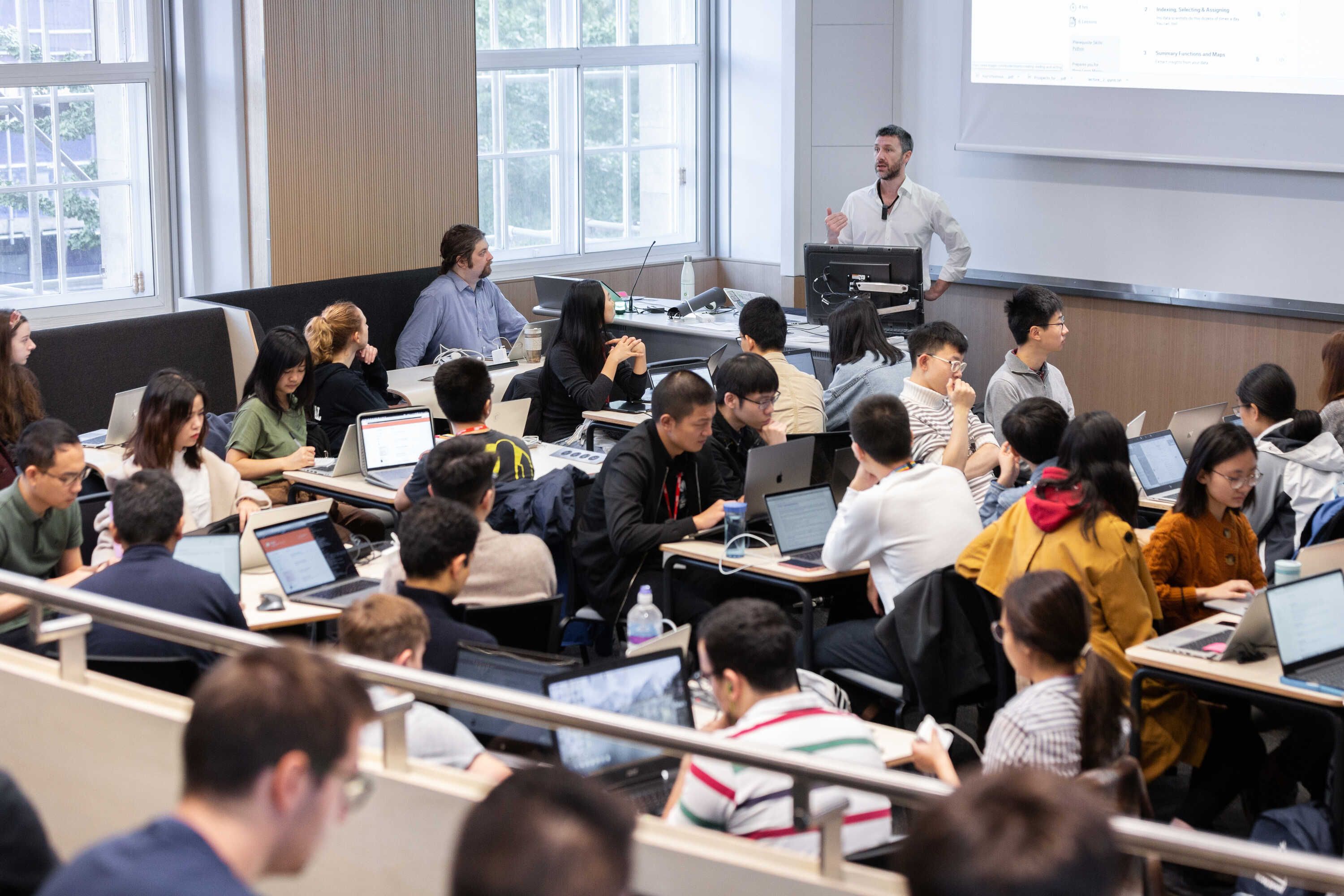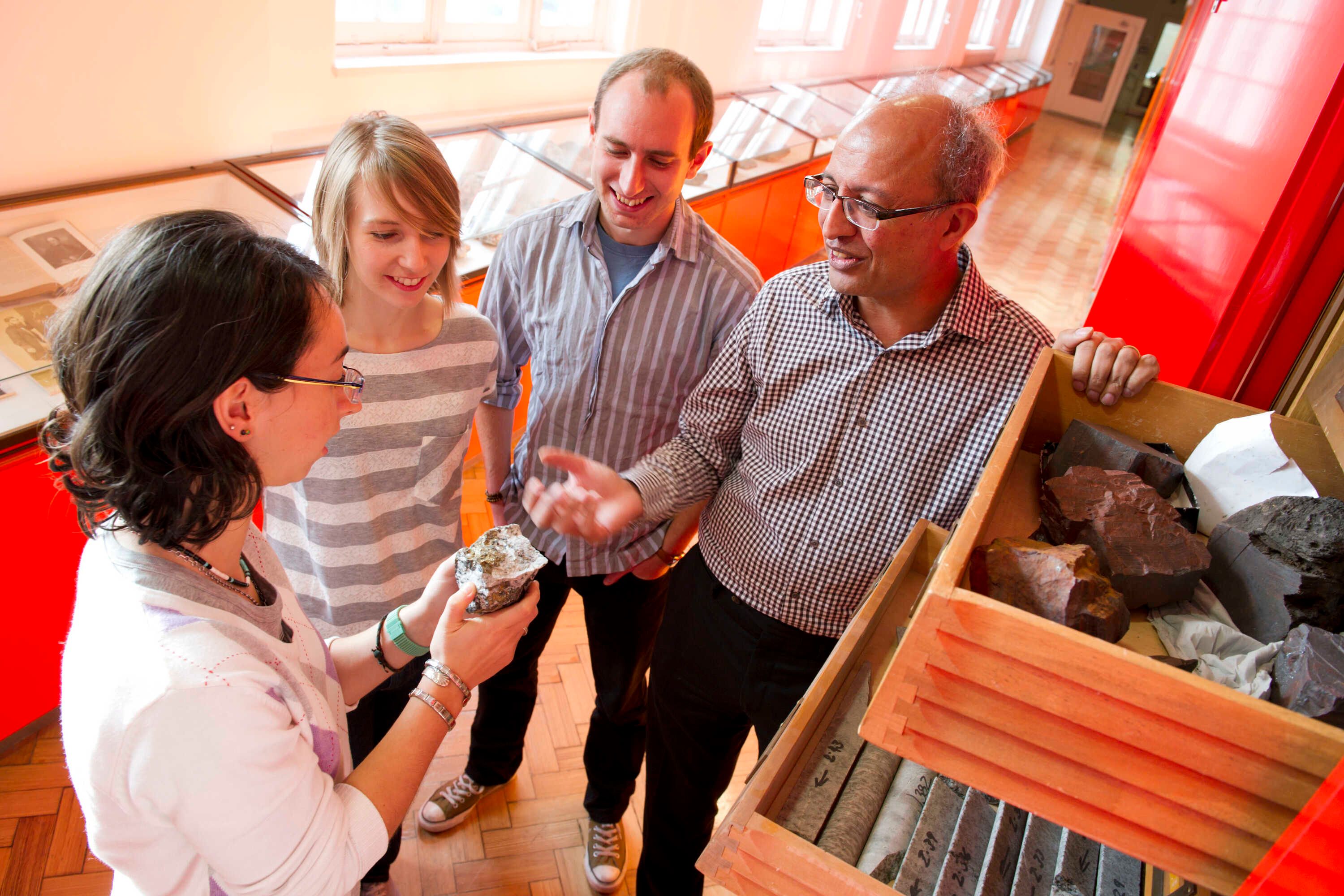
Applied Computational Science and Engineering
Discover how numerical methods and computational science can help solve large scale problems.
Discover how numerical methods and computational science can help solve large scale problems
Work under the guidance of world-class researchers and use high-performance computing resources
Participate in individual and group research projects and enhance your project management and numerical skills
Course key facts
Qualification
MSc
Duration
1 year
Start date
September 2025
Study mode
Full-time
-
Fees
£23,400 Home
£43,800 Overseas
Delivered by
Location
-
South Kensington
-
Course overview
Apply novel science and engineering approaches to solve large scale problems on this Master's course, designed to advance your knowledge of numerical methods and computational science.
You'll develop skills and techniques for a range of science and engineering applications utilising high performance computing resources, with guidance from world-class researchers.
This course is part of the Ada Lovelace Academy, an initiative from the Department of Earth Science and Engineering aiming to deliver gender-balanced post-graduate education in computational subjects to solve the science and engineering challenges of the 21st century.
Structure
This page is updated regularly to reflect the latest version of the curriculum. However, this information is subject to change.
Find out more about potential course changes.
Please note: it may not always be possible to take specific combinations of modules due to timetabling conflicts. For confirmation, please check with the relevant department.
You’ll take all of these core modules.
Core modules
Learn how to produce and validate software for research and carry out test-driven software development and continuous integration.
Explore the essential mathematics underpinning computational science, data science and machine learning.
Work collaboratively to solve problems using software and summarise your work using presentations.
Analyse concepts central to a data science approach and different types of classical machine learning algorithms.
Discover how to describe and critique the main categories of machine learning methods.
Become familiar with the key concepts and algorithms required to represent the continuous world on discrete computers.
Analyse how to develop and build C programs under both Windows and Linux operating systems and examine memory handling concepts.
Examine the methods that can be used to extract useful information from incomplete, inconsistent and inaccurate physical datasets using practical computational resources.
Explore basic concepts of parallel programming and learn implementation strategies based on shared-memory parallelism and the message-passing paradigm.
Teaching and assessment
Teaching and learning methods
-
Lectures
-
Seminars and formal presentations
-
Practical coding activities
-
Case studies
-
Group work exercises
-
Individual research
-
Formal presentations
Balance of assessment
Key
- Coursework
- Project
- 80% Written materials
- 20% Presentation and demonstration of software
Assessment methods
-
Individual and group coursework
-
Research project report
-
Oral presentations
-
Final thesis
Entry requirements
We consider all applicants on an individual basis, welcoming students from all over the world.
2:1 in Engineering or a Science-based subject.
How to apply
Apply online
You can submit one application form per year of entry. You can choose up to two courses.
Application deadlines – Round 3 closes on Thursday 15 May 2025
We operate a staged admissions process with several application rounds throughout the year.
Apply by 23.59 (UK time) on the closing date of an application round, to ensure you receive a response on your application by the relevant decision date.
Application rounds
Round 1
- Applications open on Friday 27 September 2024
- Applications close on Thursday 16 January 2025
- Decision by Thursday 6 March 2025
Round 2
- Applications open on Friday 17 January 2025
- Applications close on Thursday 27 March 2025
- Decision by Thursday 1 May 2025
Round 3
- Applications open on Friday 28 March 2025
- Applications close on Thursday 15 May 2025
- Decision by Thursday 17 July 2025
We strive to increase and broaden inclusivity and support everyone, regardless of background, in breaking down any barriers to your application the Department.
If you are interested in this MSc, we strongly encourage you to contact the postgraduate admissions officer Ying Ashton prior to starting your application: ese-msc-acse@imperial.ac.uk.
If you are applying for a taught Master’s course, you will need to pay an application fee before submitting your application.
The fee applies per application and not per course:
- £80 for all taught Master's applications excluding those to the Imperial College Business School
- £100 for all MSc applications to the Imperial College Business School
- £150 for MBA applications to the Imperial College Business School
There is no application fee for MRes courses, Postgraduate Certificates, Postgraduate Diplomas or research courses, such as PhDs and EngDs.
If you are facing financial hardship and are unable to pay the application fee, we encourage you to apply for our application fee waiver.
Find out more about how to apply for a Master's course, including references and personal statements.
An ATAS certificate is not required for students applying for this course.
Fees and funding
Home fee
2025 entry
£23,400
You should expect and budget for your fees to increase each year.
Your fee is based on the year you enter the university, not your year of study. This means that if you repeat a year or resume your studies after an interruption, your fees will only increase by the amount linked to inflation.
Find out more about our tuition fees payment terms, including how inflationary increases are applied to your tuition fees in subsequent years of study.
Whether you pay the Home or Overseas fee depends on your fee status. This is assessed based on UK Government legislation and includes things like where you live and your nationality or residency status. Find out how we assess your fee status.
If you're a UK national, or EU national with settled or pre-settled status under the EU Settlement Scheme, you may be able to apply for a Postgraduate Master’s Loan from the UK government, if you meet certain criteria.
For courses starting on or after 1 August 2024, the maximum amount is £12,471.
The loan is not means-tested and you can choose whether to put it towards your tuition fees or living costs.
How will studying at Imperial help my career?
Provide real-world problem-solving experience with applied, hands-on computational knowledge.
As an expert industry analyst, you will be highly sought after in a wide range of careers.
These include oil and gas, mineral exploration and climate science.
Our graduates often pursue further study in master's programs or doctoral research.
Pursue academic careers in fields such as optimisation and inversion, fluid mechanics, and machine learning applications.
Further links
Contact the department
- Telephone: +44 (0)20 759 43067
- Email: ese-msc-acse@imperial.ac.uk
Course Director: Dr Gerard Gorman
Postgraduate Admissions Officer: Ying Ashton
Visit the Department of Earth Science and Engineering website.

Request info
Find out more about studying at Imperial. Receive updates about life in our community, including event invites and download our latest Study guide.

Events, tasters and talks
Meet us and find out more about studying at Imperial.

Terms and conditions
There are some important pieces of information you should be aware of when applying to Imperial. These include key information about your tuition fees, funding, visas, accommodation and more.
You can find further information about your course, including degree classifications, regulations, progression and awards in the programme specification for your course.
Programme specifications